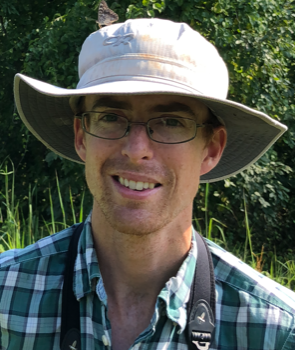Restoration of Piedmont Prairies with Bert Harris [via Zoom]
Date/Time
Thursday, April 11, 2024
7:00 pm - 8:30 pm
Categories
Bert Harris, Executive Director of the Clifton Institute, will discuss their Grassland Research and Restoration Project.
Clifton Institute staff, students, and collaborators started by studying remnant Piedmont prairies, which turned out to be the most diverse plant communities in the state. They are also studying which methods are most effective for restoring native plants and soil microbes in grasslands. And they are leading a project that has the goal of making seeds with Virginia genetics available for restoration projects.
According to the Institute:
We focus our land management and restoration work on early successional habitats (areas that have been disturbed by mowing, fire, or grazing and are re-growing into forests) and declining species found in these habitats. Grasslands, shrublands, and forest edges are especially vulnerable to invasion. Furthermore, these habitats support a disproportionate number of species that are declining across their geographic range. Grasslands in our area host American Kestrels, Grasshopper Sparrows, Eastern Meadowlarks, and Bobolinks, all of which are in decline. Prairie Warblers, Field Sparrows, and Yellow-breasted Chats are declining birds that inhabit shrublands. We manage our land and advise others to manage their land to help all of these species.
 Bert Harris has a long-standing interest in the ecology and conservation of forests and grasslands in the eastern United States. At the Clifton Institute Bert directs a program of research on grassland restoration, declining native species, and the effects of urbanization and climate change on biodiversity. He is also a passionate land manager and he works with his team to restore native plant and animal communities on the Clifton Institute’s 900-acre property. As an environmental educator Bert tries to get people excited about the lesser known and underappreciated species around us. He also strives to instill an appreciation of the intrinsic value of plants and for their importance for maintaining animal populations. Bert also has a background in research on the effects of the wildlife trade, climate change, and habitat loss on tropical birds. After attaining his B.S. in Ecology and Biodiversity at Sewanee: The University of the South, Bert completed a Ph.D. in Ecology and Evolutionary Biology at the University of Adelaide, Australia. He then went on to do a postdoctoral fellowship on the effects of the pet trade on Indonesian birds at Princeton University. Before joining the staff at Clifton, Bert was the Director of Biodiversity Conservation at Rainforest Trust. Bert is a Research Assistant Professor in Residence in the Department of Environmental Science at American University and an Affiliate Professor in the Environmental Science and Policy Department at George Mason University.
Bert Harris has a long-standing interest in the ecology and conservation of forests and grasslands in the eastern United States. At the Clifton Institute Bert directs a program of research on grassland restoration, declining native species, and the effects of urbanization and climate change on biodiversity. He is also a passionate land manager and he works with his team to restore native plant and animal communities on the Clifton Institute’s 900-acre property. As an environmental educator Bert tries to get people excited about the lesser known and underappreciated species around us. He also strives to instill an appreciation of the intrinsic value of plants and for their importance for maintaining animal populations. Bert also has a background in research on the effects of the wildlife trade, climate change, and habitat loss on tropical birds. After attaining his B.S. in Ecology and Biodiversity at Sewanee: The University of the South, Bert completed a Ph.D. in Ecology and Evolutionary Biology at the University of Adelaide, Australia. He then went on to do a postdoctoral fellowship on the effects of the pet trade on Indonesian birds at Princeton University. Before joining the staff at Clifton, Bert was the Director of Biodiversity Conservation at Rainforest Trust. Bert is a Research Assistant Professor in Residence in the Department of Environmental Science at American University and an Affiliate Professor in the Environmental Science and Policy Department at George Mason University.


Will this be recorded? I am very interested but have a conflict.
Yes, the presentation will be recorded and available later on the VNPS Vimeo site at https://vimeo.com/vnps.